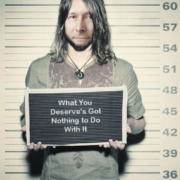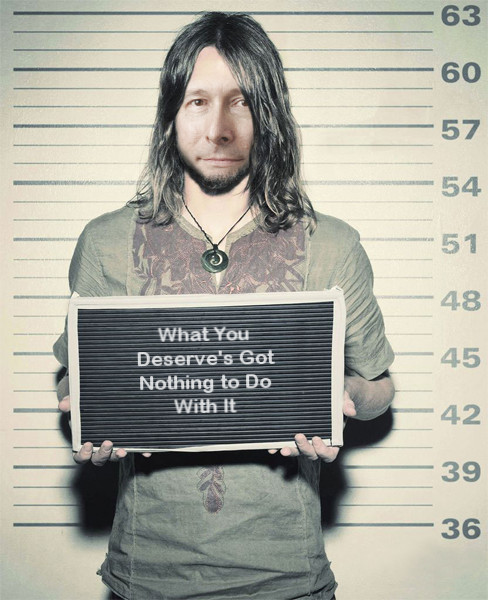How to Deal with the Winds of Change – Episode 435

It’s been a while since my last podcast and there have been a few changes since then.
Listen to this podcast episode now:
Most significantly, a loss in my family (which I will discuss in a future podcast). There have been some changes in my business, and my oldest child is now driving and in college. If there’s one thing that’s one thing you can count on, things will change.
The last time I did a podcast on change was Episode 48 in 2019. We’ve had a pandemic since then. I was 59 years old. I just turned 64 last week. It’s 2024.
I remember when we went from rotary dial phones to push button, then to cordless. I got my first cell phone in 2005. That was cool.
I remember using LPs, (long playing records but everyone calls them vinyl now) to 8 track, to cassette, to CD, to iPod to streaming music. Those changes were easy, and fun.
But there are many changes that aren’t so easy to navigate. In my last podcast I talked about heartbreak, that’s a tough one. Loss, and the death of loved ones. Getting older, how about that one? Watching your loved ones get older, watching parents age. Reminds me of a line from a Bonnie Raitt song called Nick of Time:
I see my folks are getting on
And I watch their bodies change
I know they see the same in me
And it makes us both feel strange
No matter how you tell yourself
It’s what we all go through
Those lines are pretty hard to take
When they’re staring back at you.
The pace of change in our lives accelerates exponentially. I read recently that there has been more change in the last 30 years than in the last 300.
As 21st century humans must assimilate change and new information more rapidly than at any other time in history. Especially technological change, but also, birth and death, growth and decay, marriage and divorce, buying and selling, falling in love and falling out, getting hired, getting fired, getting on board and jumping off. Sometimes you make the choice and sometimes it’s made for you.
Change will happen whether you want it to or not. Make no mistake about it, it’s hard. Change is hard. Everything about our minds does not want to change. We are wired to seek the known, the familiar, the comfortable; this is how our minds keep us safe. The unknown represents danger. That’s where much of our anxiety and fear comes from. Much of the future seems unknown.
But, when you think about it, everything about the future is unknown. We trick ourselves into thinking that things will stay the same, that we know what will happen, and that’s part of the reason why it’s so hard because we don’t know what will happen, and most things in our lives won’t stay the same.
The flip side of that is that we seek change. We want to better our lives, we want to grow, we seek to improve our situation, make more money, become more capable, more skilled, have better relationships. We want and we need change.
So how can we deal with change? Or maybe a better question is, how can we prepare for change?
The truth is that for some changes, we can’t prepare. But we can prepare our minds and hearts for what may come. First, we want to realize that life is transitory. Things come and go. All things must pass, George Harrison said that. This is the nature of things. We will pass. We must accept this reality first and avoid any magical thinking that says otherwise.
Second you need to be ready to let go. It’s hard sometimes. Letting go of youth, letting go of people, friendships. Sometimes you have to say to yourself, I let this go, I release this thing, or I release this person.
Third, we need to practice being resilient. Constitute yourself as being able to roll with the changes. We can get annoyed or angry or indignant when things change inevitably. Those are normal human emotions and reasonable responses to changes you don’t like. But don’t live there. Practice accepting, allowing, and embracing change. Practice being peaceful in the face of change. Take care of yourself physically, mentally, emotionally, that will help.
Fourth, cultivate wisdom. It’s never too early or too late to do this. See how life really is, not just how you think or would like it to be. Seek to be free from your own ego when you can, and you’ll get better at it. I always say that we think we live life but really, life lives us. Step back, be present, see the patterns of life. Get grounded in the reality of being human. Try to be happy to be alive and to be able to witness the changes such as the change of the seasons, the growth of your kids, and especially, your own growth.
I took a walk this morning and it was cloudy, and a cold wind was blowing. Soon it will rain. But I know that soon after that, it will be sunny and warm, and the flowers will bloom and the air will be fragrant. I want to be here for the changes, even for the hard ones. It’s ok, I know it’s going to be ok. I invite you to tell that to yourself a lot when you feel the winds of change blowing.
Here’s a quote for you: “Change is the law of life, and those who look only to the past and present are certain to miss the future” -John F. Kennedy.
Want to catch up on previous episodes? Click here >
If you are having trouble navigating the winds of change, I invite you to book a complimentary consultation with me so that we can explore if working together is your best path forward. To request your complimentary consultation, go to https://Tedmoreno.com/contact
and I’ll get back to you in 48 hours to schedule that.
Thanks for listening,
Ted



 Lately I’ve had more than a few people come to me for help with mending their broken hearts.
Lately I’ve had more than a few people come to me for help with mending their broken hearts.


 I was having breakfast with a couple of friends this morning and we were talking about how we met our significant others.
I was having breakfast with a couple of friends this morning and we were talking about how we met our significant others.




 It’s 1998, I’m living in Tucson Arizona and I’m not happy. My girlfriend and I were having major problems with each other and were soon to break up. Money was really tight, and to top it off, someone broke into the house I was living in and stole my stereo and the guitar that my parents had given to me for my high school graduation in 1978.
It’s 1998, I’m living in Tucson Arizona and I’m not happy. My girlfriend and I were having major problems with each other and were soon to break up. Money was really tight, and to top it off, someone broke into the house I was living in and stole my stereo and the guitar that my parents had given to me for my high school graduation in 1978.


 My oldest daughter graduated from high school a few days ago and my younger daughter is turning 16 this month. My wife asked me how I felt about that. I thought for a second and said “I guess I’m just observing.”
My oldest daughter graduated from high school a few days ago and my younger daughter is turning 16 this month. My wife asked me how I felt about that. I thought for a second and said “I guess I’m just observing.”

